… then there was that second item. With apologies, my review of The Patent Leather Kid will have to wait one more day. Yesterday’s Molly O’Day aside was an unexpected interruption, but I did suspect Jack Dempsey might throw me off track for another day. And he did.
I haven’t read anything specifically on Dempsey in years, but Jack Cavanaugh’s 2006 biography of Dempsey’s greatest opponent, Tunney, has become a favorite resource whenever relevant. The Patent Leather Kid made me open my copy, not for reference to its main subject, Gene Tunney, but because I recalled it had provided almost equal coverage of Dempsey, who Tunney had beaten—twice. I’ll excerpt the Cavanaugh book in one spot below, but will otherwise allow the old news clippings to tell most of this story.
I should note, I didn’t create this page in order to smear Jack Dempsey. By the bottom of the page it’s actually going to show how his image rehabilitated and his popularity grew over time. I only constructed the post this way because I’m preparing a review of the 1927 film The Patent Leather Kid, where Richard Barthelmess stars as a boxer who is branded a slacker after the Great War breaks out. The movie owes a lot to Dempsey’s story, which makes our first clipping a bit of a surprise:
The above clippings cover the “slacker” backstory that looms throughout The Patent Leather Kid. This seems like a good place to stop and include a timeline of relevant events:
- September 23, 1926 – Gene Tunney becomes heavyweight champion of the world when he defeats Jack Dempsey via 10 round decision at Sesquicentennial Stadium in Philadelphia.
- July 21, 1927 – Dempsey KOs Jack Sharkey in the 7th round at Yankee Stadium in New York. In The Patent Leather Kid the Richard Barthelmess character fights a character named Battling Sharkey.
- August 15, 1927 – The Patent Leather Kid opens in New York. It will begin playing nationwide the following month.
- September 22, 1927 – In the rematch Gene Tunney once again beats Dempsey via 10 round unanimous decision at Soldier Field in Chicago. This is the famous “Long Count” fight.
Source of the following, Tunney: Boxing’s Brainiest Champ and His Upset of the Great Jack Dempsey by Jack Cavanagh, 2006, Random House, pages 352-3:
The ovation for Dempsey was huge, rising to a crescendo that could be heard a mile away. Tunney, while cheered by many of the spectators, received a far more subdued reception. That was a sharp contrast tot their first fight, when the cheers for Tunney were far greater than for Dempsey, who was making his first appearance in a boxing ring in three years and was resented for that and, to a lesser degree, because more than a few sportswriters had played up Tunney’s military service … By now, though, the slacker innuendos that had been lodged against Dempsey were forgotten … Best remembered now were his knockout of Jack Sharkey, only two months earlier, and his graciousness after losing his title to Tunney a year ago.
Dempsey married movie star Estelle Taylor in February 1925. In The Patent Leather Kid the Barthelmess character falls for a nightclub dancer. Not quite the same, but close enough.
Dempsey’s reputation only improved with the passage of years as he was universally recognized as one of the greatest sports legends of the twentieth century, his legacy even far surpassing the man who’d twice bested him, Gene Tunney.
Unlike the early snippets on this page the articles praising Dempsey over the decades that followed were lengthy tributes that won’t fit comfortably on this page. He’s celebrated in this 1928 article upon his retirement; touted as “most popular champion” in this 1943 look back; “The boos stopped after he retired,” said this 1977 headline over an article published at the release of his autobiography. When Dempsey died in 1983 he was recalled fondly by Red Smith, who actually predeceased the champ by more than a year, but had this tribute ready for the presses. Each of those articles reference Dempsey’s troubles due to his war-time record. By the time of his death Dempsey’s legacy had even dashed the footnote—slacker charges do not figure in either obituary syndicated by the AP or UPI wire services.
While I won’t go so far as to promise my review of The Patent Leather Kid for tomorrow, I expect to have it to you then. None of my other notes should cause one of these distractions, which, I hope, you enjoy as much as I do.



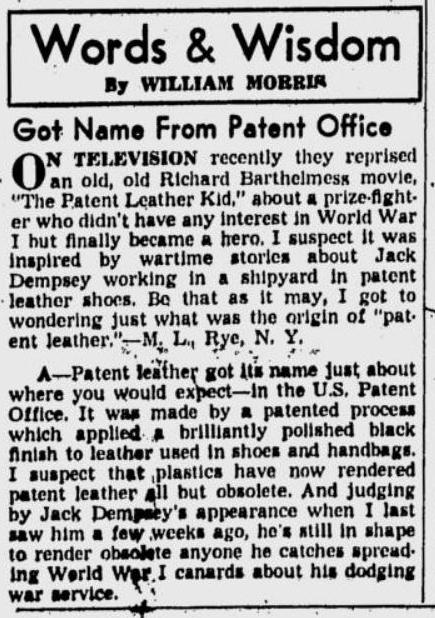
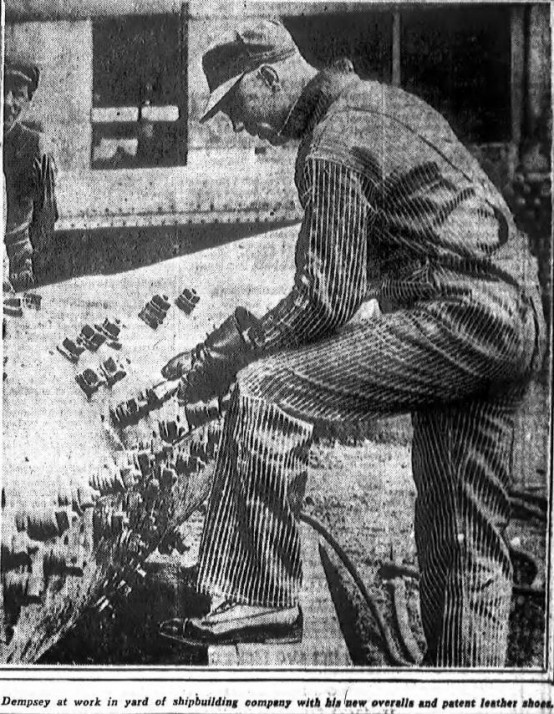
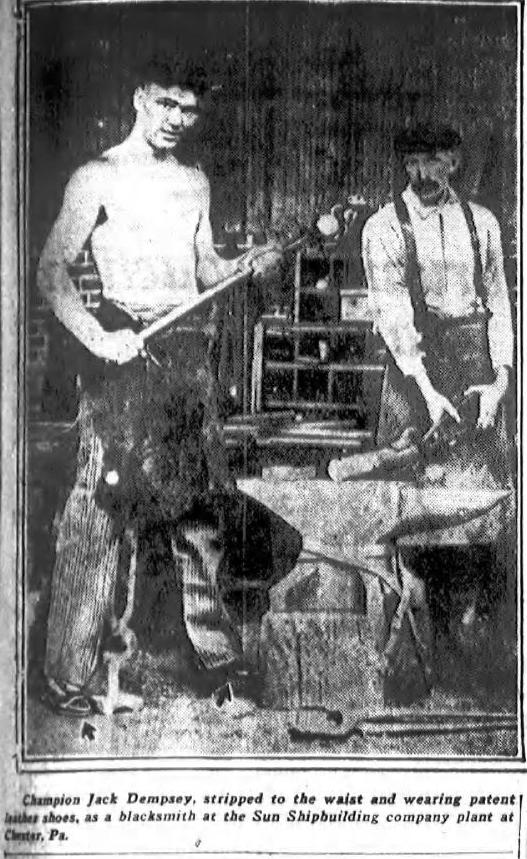
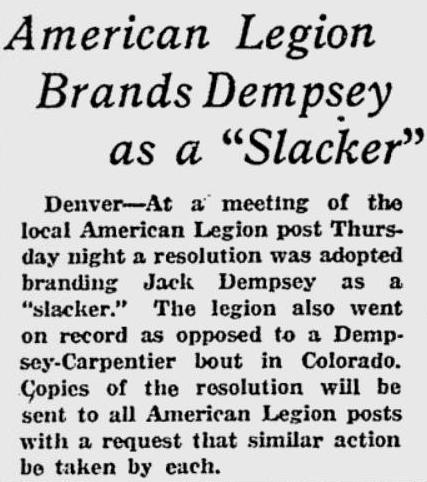
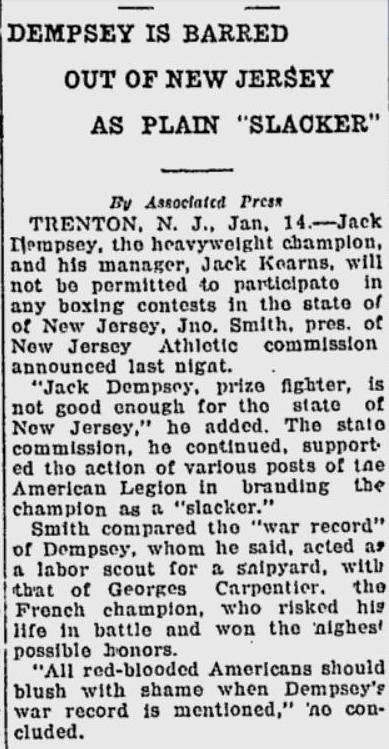










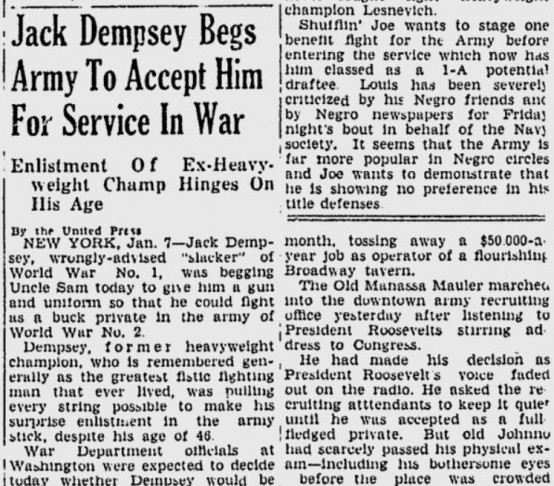


Leave a Reply